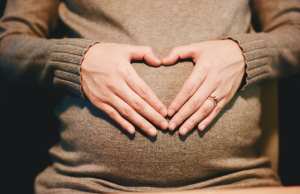This is the first time in anyone has written me to stick up for men’s rights in Judaism!
The answer to your question is based upon a fascinating reversal in the defining status of a Jew, whether it depends upon patrilineal (father-based) or matrilineal (mother-based) descent. During the time of the patriarchs, Abraham, Isaac and Jacob and the Tribes, Jewish descent clearly depended upon the father, not the mother. Although the patriarchs took great pains to marry “within the family” and not take Canaanite women, the Tribes did not do so. Their children were, nevertheless, considered the continuation of the covenant and family of Abraham.
This might have been so because of the following surprising fact: the patriarchs were the fathers of the Jewish nation, but were not technically Jewish. The Jews became a “Jewish nation” when they received the Torah at Sinai and all went through the conversion process at that time (as spelled out by the Talmudic sources, based upon the relevant verses). If they were already Jewish they had no need to convert; although many already upheld the covenant of Abraham and performed bris milah in Egypt, they still entered a mikveh at Sinai and converted to the Jewish religion presented there.
At that time, there was a reversal; G-d dictated in the Torah that one’s Jewish status depends on the mother (matrilineal descent). This is derived from the verse which states “You shall not intermarry with them; you shall not give your daughter to his son and you shall not take his daughter for your son, for he will cause your child to turn away from Me and will worship the gods of others…” (Deut. 7:3). The question is why is the Torah only concerned that “he”, the non-Jewish son-in-law, will sway your grandchildren away from the service of G-d; but not that “she”, the non-Jewish daughter-in-law, will do the same? The Talmud infers from that only the non-Jewish father is a concern of swaying the grandchildren away from Judaism, as they are still Jews since their mother is Jewish. But if the mother is not Jewish, it is too late to worry the children will be swayed away, as they are already not Jewish themselves to begin with. The Talmud derives from this that the mother, not the father, determines the status of the child as a Jew; hence the concept of matrilineal descent. (Talmud Kiddushin 88b).
The tribal status of a Jew depends upon the father. Only the father’s lineage can award the status of Cohen, Levi, Israel, and which specific tribe one belongs to with its ensuing inheritance in the Land of Israel. The essential definition of who is Jewish, however, depends upon the mother.
Why the Jewish status depends upon the mother, in my understanding, is because G-d endows the fetus with the soul, its spiritual essence, on the 40th day from conception. In order for the fetus to be the recipient of a unique Jewish soul the fetus must be in the womb of a Jewish woman. “Womb” in Hebrew is “rechem,” meaning mercy; the woman is G-d-like in that she shares G-d’s mercy in bringing new life into the world. It takes a Jewish womb to enable the entry and endowment of a Jewish soul into the new life she carries (Location, location, location!).
Sincerely,
Rabbi Yerachmiel Fried


